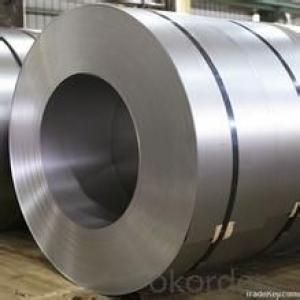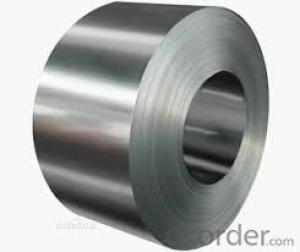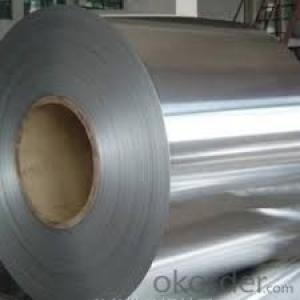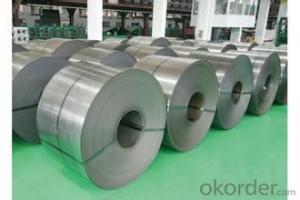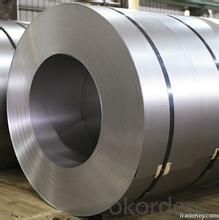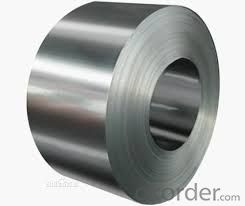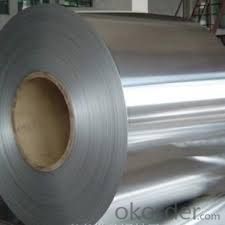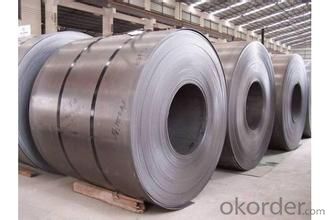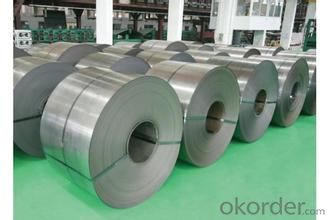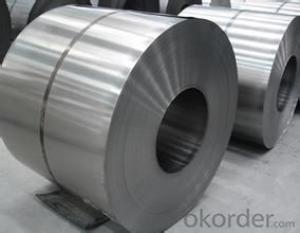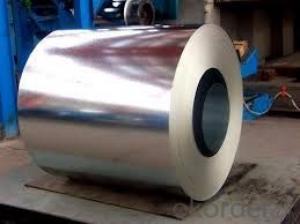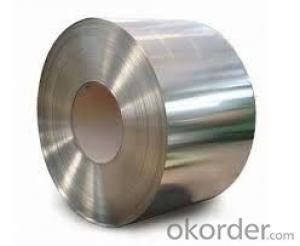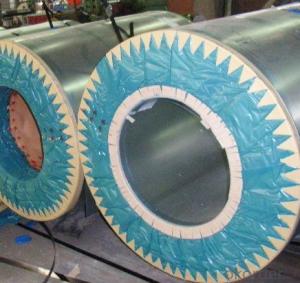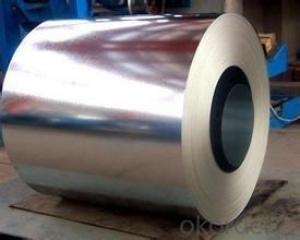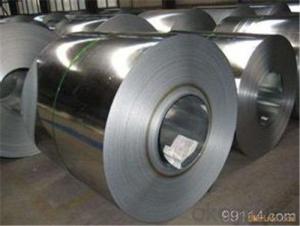good hot-dip galvanized/ aluzinc steel supplier from CNBM
- Loading Port:
- Tianjin
- Payment Terms:
- TT OR LC
- Min Order Qty:
- 100 m.t.
- Supply Capability:
- 5000000 m.t./month
OKorder Service Pledge
OKorder Financial Service
You Might Also Like
Description:
Standard: | AISI,ASTM,BS,DIN,GB,JIS | Grade: | SGCC,DX51D/DX52D/S250,280GD | Thickness: | 0.12-4.0 mm |
Place of Origin: | Brand Name: | N/M | Model Number: | ssp-226 | |
Type: | Steel Coil | Technique: | Cold Rolled | Surface Treatment: | galvanized/ Galvalume/zinc coatting |
Application: | strong anti-corrosion ability,cold bending molded manufacturablity | Special Use: | High-strength Steel Plate | Width: | 600-1250 mm |
Length: | in coil | product: | g40 prime/secordary hot-dip galvanized cold rolled steel coil/sheet |
|
|
Packaging & Delivery |
|
|
|
|
|
Packaging Detail: | standard export package,Other types of packing can be customized as per client's requirement. | ||||
Delivery Detail: | as per client's requirements | ||||
Service:
1,on time delivery
2,high quality with competitive price
3,good service
4,long-term cooperation
5, rely on honors
We can ensure that stable quality standards are maintained, strictly meeting both market requirements and customers’ expectations. Our products enjoy an excellent reputation and have been exported to Europe, South-America, the Middle-East, Southeast-Asia, Africa and Russia etc.. We sincerely hope to establish good and long-term business relationship with your esteemed company.
- Q: Why does steel with several composites have a greater hardenability from quenching than low carbon steel alloys?Any help would be great
- Bit tricky to explain and I don't know muh about it but steel on its own has lost of gaps in it ( the molecular structure) and when carbon is added thos gaps are filled, I think of it like this: it is easier to punch through expanded polystyrene( with all the little balls) than unexpanded(just a lump of plastic) as the balls are not properly joined and have air pockets between them.
- Q: How are steel coils used in the production of agricultural systems?
- Steel coils are often used in the production of agricultural systems due to their durability and strength. These coils are typically used in the construction of machinery and equipment that are essential in agricultural operations. One common application of steel coils is in the manufacturing of farming machinery such as tractors, plows, and cultivators. These machines require sturdy components to withstand the demanding conditions of the agricultural environment. Steel coils are used to fabricate the frames, chassis, and other structural parts of these machines, providing the necessary strength and support. Steel coils are also used in the production of irrigation systems, which are crucial for efficient water management in agriculture. These coils are utilized in the construction of pipes, valves, and fittings, ensuring the durability and longevity of the irrigation system. Additionally, steel coils are used to manufacture storage tanks and silos, which are essential for storing and preserving agricultural products such as grains, seeds, and fertilizers. Furthermore, steel coils find application in the construction of greenhouses and agricultural buildings. The coils are used to fabricate the structural framework, providing stability and resistance against environmental factors. Steel coils are also used in the production of fencing and enclosures to protect crops and livestock from external threats. In summary, steel coils play a vital role in the production of agricultural systems by providing the necessary strength, durability, and stability required for farming machinery, irrigation systems, storage facilities, and agricultural structures. Their usage ensures that these systems can withstand the demanding conditions of the agricultural industry and contribute to efficient and sustainable farming practices.
- Q: How do steel coils contribute to the marine vessel construction industry?
- Steel coils are a vital component in the marine vessel construction industry as they serve as the primary material for building the hulls and structural components of ships and boats. The high strength and durability of steel make it ideal for withstanding the harsh conditions of the marine environment, including corrosion from saltwater and extreme weather conditions. Steel coils are used to fabricate various ship parts such as hull plates, bulkheads, decks, and frames, ensuring the structural integrity and safety of the vessel. Additionally, steel coils allow for efficient and cost-effective manufacturing processes, enabling the construction of vessels of different sizes and types to meet the diverse needs of the maritime industry.
- Q: Can steel coils be coated with zinc-aluminum alloy?
- Yes, steel coils can be coated with zinc-aluminum alloy.
- Q: How are steel coils used in the manufacturing of automotive wheels?
- Steel coils are used in the manufacturing of automotive wheels as a primary material for the wheel rims. The steel coils are shaped, cut, and welded to create the desired size and design of the wheel rim. They provide high strength and durability, ensuring the wheels can withstand the weight of the vehicle and the impact of road conditions.
- Q: what is the stucture of high carbon steel
- That is kind of a broad question because high carbon steel can cover a broad range and you did not mention the condition. But I will try to keep it simple. If it is in a wrought condition, it would likely be pearlite plus carbides along the grain boundaries., The atomic structure would be body centered cubic. Sometimes high carbon steel is spherodized annealed and that would be ferrite with lots of round carbides. The atomic structure would be body centered cubic. If it is quench and tempered, it would be martensite and would probably have noticeable carbides if the carbon content was high enough. The atomic structure would be body centered tetragonal
- Q: What are the common methods of painting or coating steel coils?
- The common methods of painting or coating steel coils include coil coating, spray painting, electrostatic painting, and powder coating.
- Q: How do steel coil manufacturers contribute to local economies?
- Steel coil manufacturers contribute to local economies in several ways. Firstly, they create employment opportunities by hiring a significant number of workers, thereby reducing unemployment rates and improving the standard of living in the community. These jobs often include a range of skill levels, from entry-level positions to highly specialized roles, providing a diverse range of employment options for locals. Additionally, steel coil manufacturers contribute to the local economy through their supply chain. They typically rely on local suppliers for raw materials, transportation services, and various support services, fostering business relationships and boosting the local economy. This leads to increased revenue for these suppliers and stimulates economic growth in the region. Moreover, the presence of steel coil manufacturers can attract other businesses to the area, such as logistics companies, distributors, and machine shops, which further enhances the local economy. This expansion of the industrial sector can result in a multiplier effect, generating additional job opportunities and attracting investment from outside the community. Lastly, steel coil manufacturers often engage in corporate social responsibility initiatives, such as supporting local charities, sponsoring community events, or investing in infrastructure development. These contributions not only have a positive social impact but also contribute to the overall economic development and well-being of the local community. In summary, steel coil manufacturers play a crucial role in local economies by creating jobs, stimulating the supply chain, attracting businesses, and investing in community development, all of which contribute to the growth and prosperity of the region.
- Q: Can steel coils be coated with anti-counterfeit materials?
- Yes, steel coils can be coated with anti-counterfeit materials. These materials can include specialized coatings, holograms, unique serial numbers, or other security features that help prevent counterfeiting and ensure the authenticity of the steel coils.
- Q: How is steel different than iron?How many different kinds of steel are there?What type is the strongest?Which type is the weakest?
- steel has carbon in it instead of just iron there are hundreds if not thousands of different kinds of steel for different applications strength depends on the definition. some have stronger tensile (pull) strength than others.
Send your message to us
good hot-dip galvanized/ aluzinc steel supplier from CNBM
- Loading Port:
- Tianjin
- Payment Terms:
- TT OR LC
- Min Order Qty:
- 100 m.t.
- Supply Capability:
- 5000000 m.t./month
OKorder Service Pledge
OKorder Financial Service
Similar products
Hot products
Hot Searches
Related keywords
